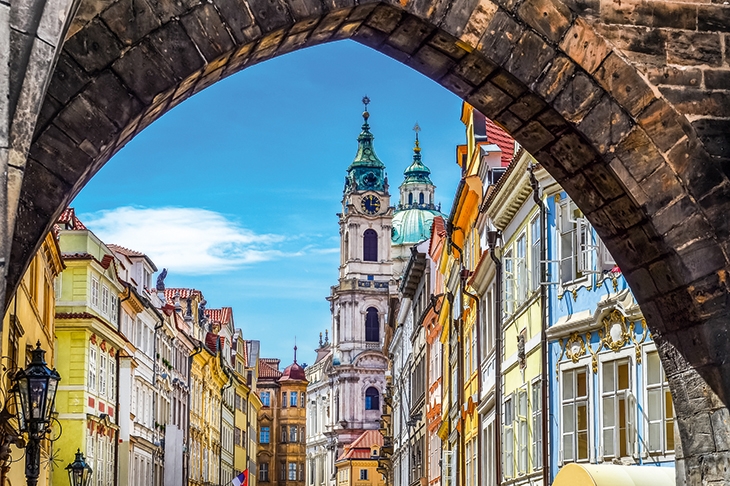Prague. Prague. It helps to say the name at least twice as a countermeasure to the ridiculous ease of modern travel — especially when visiting cities of one syllable. Another countermeasure is to arrive by train, where the sweep of the landscape gives a better sense of Prague as the grand Bohemian capital than as a retreat for Hapsburg aristocrats and easyJet stag parties.
There are direct trains from Munich and Budapest, and of course Vienna and Bratislava, to Prague’s Hlavní nádraží station, originally christened Wilsonovo nádraží after the US president who championed Czechoslovak independence. A new Wilson monument stands outside the station, replacing the original statue, which the Nazis melted down for its bronze. The art-nouveau station building is quite a sight, and a short walk from other ‘sights’ — the Old Town and Wenceslas Square are just a few blocks away. Avoid the taxi ranks unless you need a reminder of how easy it can be to get ripped off in Prague. That’s entirely unnecessary in a city which remains navigable on foot and is full of music and beer, both of which are excellent and affordable.
The music came first, for me. Smetana and Dvořák’s scores, so central to the emerging sensibility of the country’s nationalist revival, also provided my teenage years with much of their soundtrack. The beer came a little later, from the cramped bar of West Hampstead’s Czech club, where enormous glasses of frothy Gambrinus pilsner and smaller ones of slivovitz were all you could order, or want. There were two old posters, one of the young Václav Havel holding protest, another of a woman on a bike having her bottom spanked, both of which made me keen to travel to the country. There was also a sign reading ‘No Albanians’ on the front door, which made me less keen. I stopped going when they switched from Gambrinus to the ubiquitous Urquell, stupid because Czech pilsner — nowadays mostly brewed in Slovakia where the water’s better — tastes pretty alike. ‘Není pivo jako pivo’: there’s no beer like beer.
The saying captures an important truth about Czech people, which is that they are mindful of quality but not taken in by bullshit. Most things — apart from the worst tourist traps crowded round the Charles Bridge — have a genuine feel which derives from the deep roots of Czech culture; an innate sense of how things should be done. It’s something you can still hear in the magnificently co-ordinated string section of the Czech Philharmonic, and seems to have been among the reasons for Mozart’s strong attraction to the place, when he arrived to conduct Figaro early in 1787 (after its premature withdrawal from fashion-obsessed Vienna), and in returning for Don Giovanni and La Clemenza di Tito, both commissioned by Prague’s National Theatre.
Today’s musical scene remains lively. The Opera’s new season is just under way, with a production of Martinů’s ravishing Juliette, while the annual Prague Spring festival, founded by Rafael Kubelik in 1946 to celebrate the Philharmonic’s 50th anniversary, brings the musical great and good to the Rudolfinum hall. But much of the best of the city’s musical culture is to be found in the small concert series and one-off chamber recitals which take place in small venues and even people’s homes, advertised word-of-mouth or through postcards pinned to coffee-shop walls.






Comments